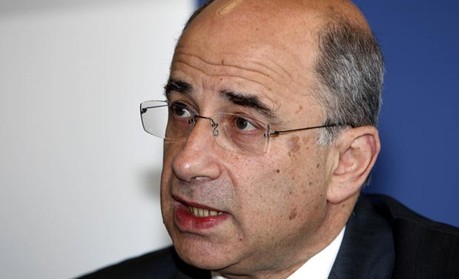
Lord Justice Leveson, whose two-part public inquiry into phone hacking and media standards is now underway
Credit: Sean Dempsey/PALord Justice Leveson has rejected a call for him to appoint someone with tabloid or regional newspaper experience to the panel of his public inquiry into phone hacking and media standards.
The application for the panel to be supplemented by a former tabloid or regional editor was made by the publisher of the Daily Mail, with support from the publishers of the Guardian and the Daily Mirror.
The current six-strong panel consists of: George Jones, former political editor of the Daily Telegraph; Elinor Goodman, former political editor of Channel 4 News; Sir David Bell, former chairman of the Financial Times; Lord David Currie, former chairman of Ofcom; Shami Chakrabarti, chief of human rights group Liberty; and Sir Paul Scott-Lee, former chief constable of West Midlands police.
Acting on behalf of Daily Mail publisher Associated Newspapers, Jonathan Caplan QC told the high court last month that additional panel members were needed to "fill the gap" in expertise.
Supporting the appeal, Gillian Phillips, director of editorial legal services for the Guardian, said: "Our view is that tabloid and mid-market papers, as well as regional papers, will play a vital part in the story and we believe it is important that those assisting the inquiry reflect the plurality and divergence of the wider UK media."
But Leveson yesterday rejected the newspaper groups' request, claiming that the bulk of evidence he will require to make his report would come from those giving evidence to the inquiry rather than sitting on the panel, and the tabloid, mid-market and regional press would be "afforded every opportunity" to provide evidence.
"I do not consider it desirable at this stage to appoint any further assessors. At present, I am satisfied that I can, and will, obtain a very full range of evidence which will assist me in addressing the Terms of Reference and making my recommendations.
"If any core participant or indeed any interested party or individual identifies any 'gap' in my knowledge, or the evidence I am hearing, it is incumbent upon them to identify it, and to ensure that suggestions are made to the Inquiry as to how those gaps can be filled.
He added that the "ethical approach" taken by journalists should be the same across all types of newspapers and the conception of the public interest should not vary, mitigating the need to have all parts of the press represented.
Leveson's response also noted that he is under no legal obligation to have every possible interest represented on the inquiry panel, but said he will continue in the course of an inquiry with an "open mind" and is "prepared to reconsider" his decision not to appoint addition advisers if necessary.
Seminars in Leveson's two-part inquiry have begun, with transcripts and video now available on the inquiry site.
Free daily newsletter
If you like our news and feature articles, you can sign up to receive our free daily (Mon-Fri) email newsletter (mobile friendly).
Related articles
- New guidelines call for the abolition of kill fees and fair payment practices for freelance journalists
- Seasoned reporting: charting changing tastes in the field of food journalism
- How to report on homicide and interview grieving families
- Reporting on homicide and interviewing grieving families, with Tamara Cherry
- IPSO publishes a draft guidance on reporting of sex and gender identity









